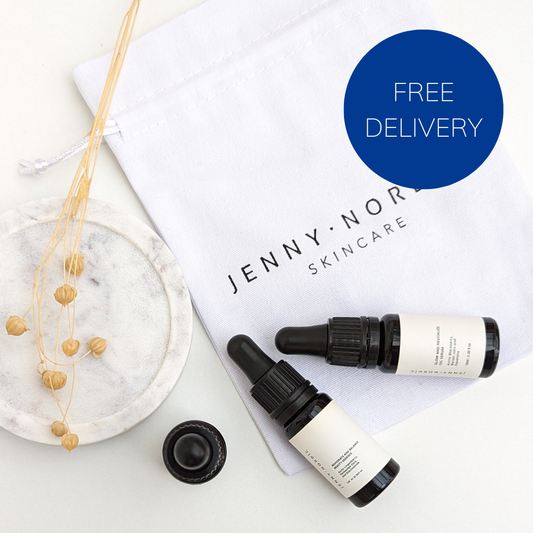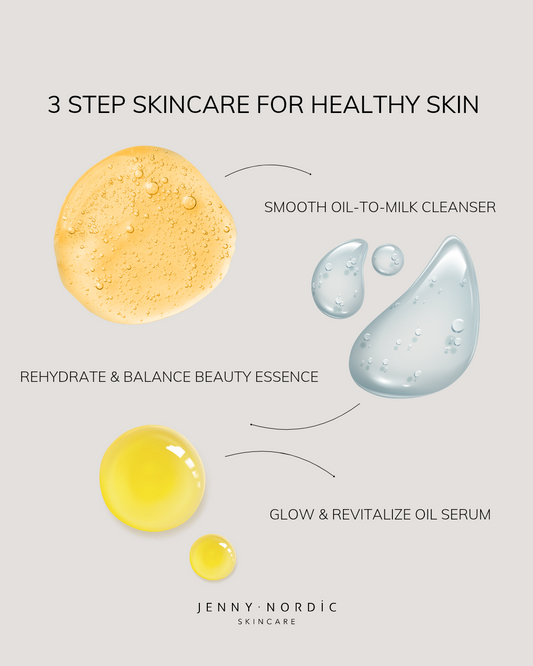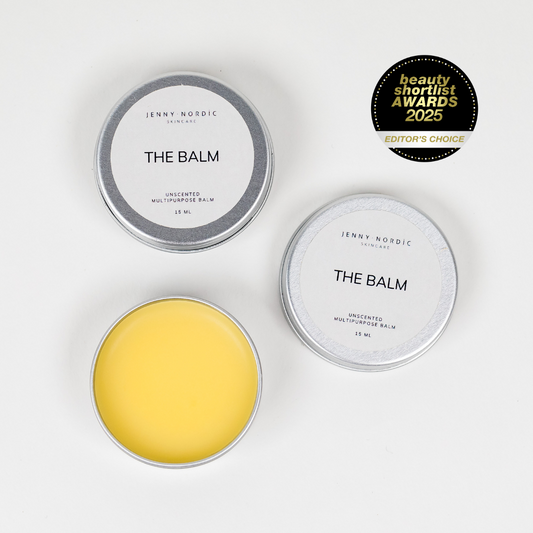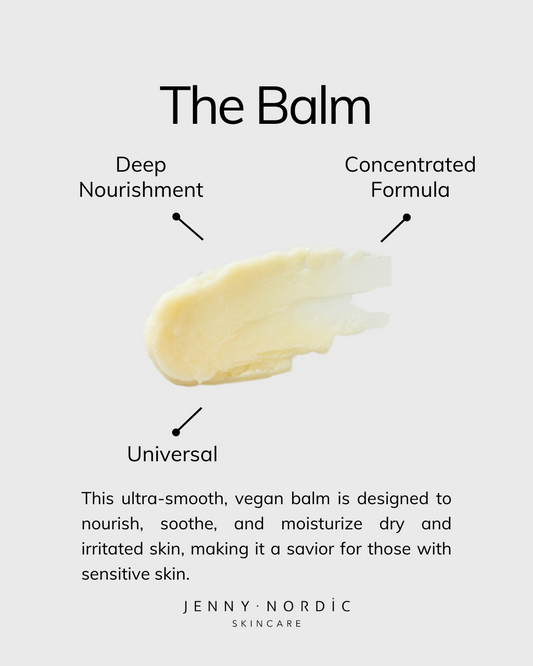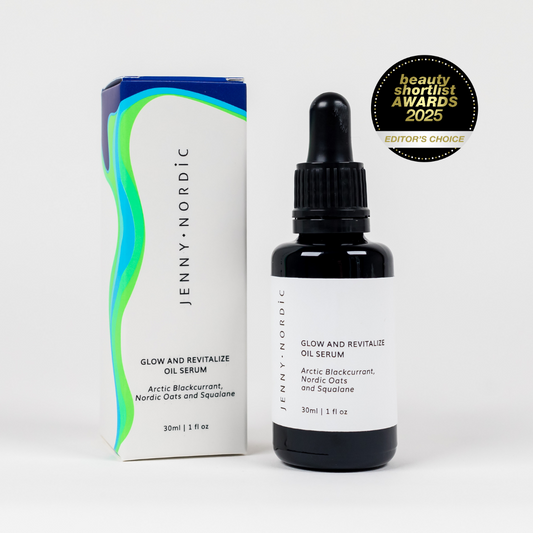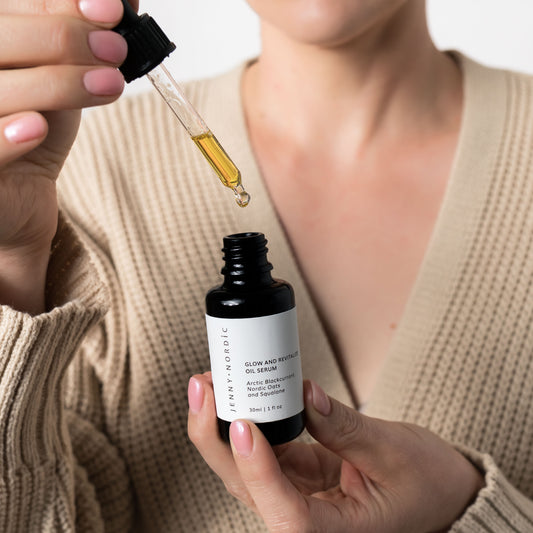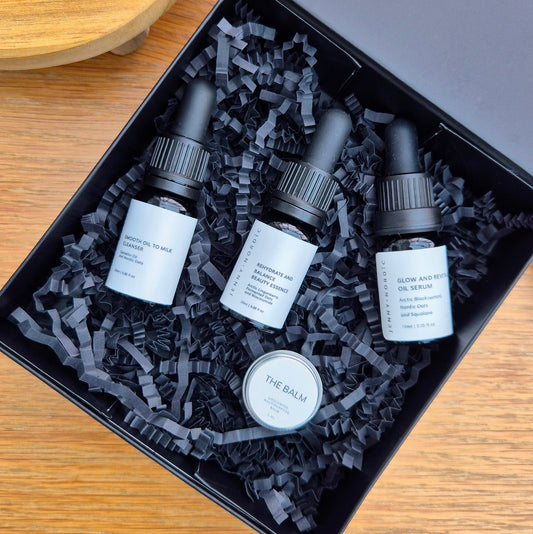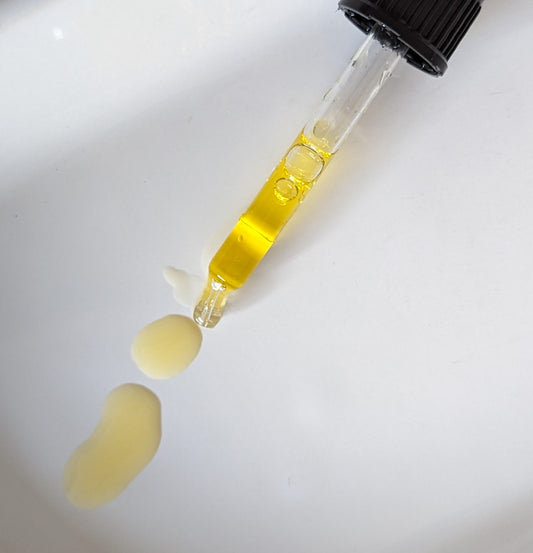
Hormonal Skin: How to Navigate Breakouts and Sensitivity with Ease in Perimenopause
Share
For women over 40, one of the most significant skin challenges is the impact of fluctuating hormones. These hormonal shifts can lead to breakouts, increased sensitivity, and other skin issues that may seem like a throwback to teenage years. Understanding the underlying causes and adopting the right skincare strategies can help you navigate these changes with confidence and ease.

Understanding Hormonal Skin After 40
Hormonal changes are a natural part of ageing, and they can significantly affect your skin. As you enter your 40s, your hormone levels—particularly oestrogen—begin to decline. Oestrogen plays a crucial role in maintaining skin elasticity, moisture, and overall health. When its levels drop, it can trigger a range of skin issues, including:
-
Breakouts: A decline in oestrogen can cause an increase in androgens (male hormones), which can lead to excess oil production and clogged pores. This often results in acne or occasional breakouts, even if your skin has been clear for years.
-
Sensitivity: Hormonal shifts can make your skin more reactive to environmental factors, such as pollution, sun exposure, and harsh skincare products. This can lead to redness, irritation, and a generally more sensitive complexion.
-
Dryness: As oestrogen levels drop, so does the skin’s natural ability to retain moisture. This can result in dryness, flakiness, and an overall dull appearance.
-
Thinning Skin: Reduced oestrogen also means a decrease in collagen and elastin production, leading to thinner, less resilient skin. This makes the skin more susceptible to damage and slower to heal.
How to Manage Hormonal Breakouts In Your 40s
Managing breakouts caused by hormonal changes requires a gentle, yet effective approach. Here’s how you can take control of your skin:
Adopt a Consistent Skincare Routine
Consistency is key when it comes to managing hormonal breakouts. Establish a daily skincare routine that includes:
-
Cleansing: Use a gentle oil cleanser once or twice a day to remove impurities without stripping the skin of its natural oils. Try Smooth Oil to Milk Cleanser that's formulated with congested adult skin in mind. It's a blend of camellia, castor oil and oat oil to help clear the skin and balance the mind.
-
Hydrate: Dehydrated skin can sometimes lead to congestion. Rehydrate & Balance Beauty Essence beautifully hydrates the skin. It is formulated with fermented oat extract that's shown to balance the skin microbiome, strengthen the skin barrier and contains lactic acid that helps slough off dead skin cells. Niacinamide will fight the impurities.
-
Moisturising: Choose a lightweight, non-comedogenic face oil that won’t clog your pores. Even if your skin feels oily, it’s important to keep it moisturised and nourished. Try our Glow & Revitalize Oil Serum which helps balance the skin's oil production.
-
Don't squeeze the spots: This is so tempting, I know. But it will also cause potential infection, worsen the inflammation and lead to scarring.

Manage Stress Levels
Stress is a major trigger for hormonal breakouts, as it can lead to an increase in cortisol levels, which in turn stimulates oil production. Try yoga, meditation, or taking a few minutes each day to breathe deeply and relax. Prioritising self-care can have a significant impact on your skin’s health.
I have written a free guide to help you get less stressed and get your skin happy again in 5 easy steps. You can download the guide here.
Consider Dietary Adjustments
What you eat can also influence your skin’s condition. Foods high in sugar and dairy have been linked to increased breakouts in some people. Consider reducing your intake of these foods and incorporating more skin-friendly options, such as:
-
Omega-3 Fatty Acids: You can find omega-3s in fish, flaxseeds, and walnuts, omega-3s help reduce inflammation and can improve the overall health of your skin.
-
Antioxidant-Rich Foods: Berries, leafy greens, and nuts are packed with antioxidants that help protect your skin from oxidative stress and inflammation.
-
Probiotics: A healthy gut microbiome is essential for clear skin. Incorporate probiotic-rich foods like yoghurt, kefir, and fermented vegetables to promote gut health.
Read more about diet and breakouts here.

Navigating Skin Sensitivity with Confidence in Perimenopause
In addition to breakouts, hormonal changes can make your skin more sensitive. Here’s how to care for your sensitive skin:
Simplify Your Skincare Routine
Less is more when it comes to sensitive skin. Stick to a minimal routine with gentle, fragrance-free products that are designed for sensitive skin. Avoid products with alcohol, synthetic fragrances, and harsh exfoliants, as these can irritate.
Hydrate and Protect
Keeping your skin hydrated is crucial. Use a moisturizer that contains ceramides, hyaluronic acid, or glycerine, which help to strengthen the skin’s barrier and lock in moisture. During the day, always apply a broad-spectrum sunscreen with at least SPF 30 to protect your skin from UV damage
Patch Test New Products
Before introducing a new product into your routine, do a patch test on a small area of your skin to ensure it doesn’t cause a reaction. This can help you avoid widespread irritation and find products that your skin loves.
Consult with a Skin Specialist
If you’re struggling to manage your skin sensitivity, it may be worth consulting with a skin specialist. They can provide personalized advice and recommend treatments that are tailored to your skin’s unique needs.
Jenny, the founder of Jenny Nordic Skincare, cosmetologist, holistic beauty therapist and certified organic anti-ageing skincare formulator offers free skin consultations where you can chat about anything skin-related with confidentiality. Jenny will always offer her best advice, find out more and recommend products, but never hard-sell to you!
Book your free skin consultation here.

Embrace Pro-Aging with Holistic Care
While it’s important to address the specific challenges that come with hormonal skin, it’s also crucial to embrace the changes and take a holistic approach to skincare. Here are some additional tips to support your skin’s health as you age:
-
Stay Hydrated: Drinking plenty of water helps keep your skin hydrated from the inside out.
-
Prioritise Sleep: Your skin repairs itself while you sleep, so aim for 7-8 hours of quality sleep each night. Find the best tips for sleep and radiant skin here.
-
Exercise Regularly: Physical activity increases blood flow, delivering oxygen and nutrients to your skin, which can give you a healthy glow. Read more about how to exercising can help balance hormonal fluctuation here.
-
Mind Your Mental Health: Mental well-being is closely linked to skin health. Practice mindfulness, connect with loved ones, and make time for activities that bring you joy.
Final Thoughts On Hormonal Skin
Navigating hormonal skin changes after 40 doesn’t have to be daunting. By understanding the root causes of breakouts and sensitivity and adopting a mindful, consistent skincare routine, you can maintain healthy, radiant skin. Remember, your skin is a reflection of your overall well-being, so take care of yourself inside and out, and embrace the beautiful journey of pro-aging.
Love,
Jenny, the founder of Jenny Nordic Skincare
PS. For daily skincare tips and inspiration, follow us on Instagram!

